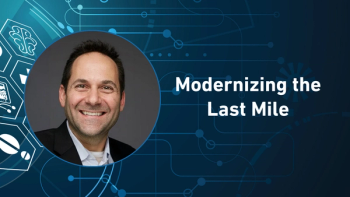
- Pharmaceutical Commerce - November/December 2011
Ameritox proposes ongoing monitoring for pain patients, with a validated comparative database
Latest study validates an observational database as a measure across disparate geographies
There are many companies involved in drug testing for employees, professional athletes or law enforcement procedures, but there are relatively few that come at the topic from a healthcare perspective. One of these, Ameritox (Baltimore) has developed a pain medication monitoring system that goes well beyond testing the presence of narcotics (both prescribed and illicit); the company is offering its Rx Guardian system to pain specialists as a method of keeping patients on therapy—both in cases of overdosing, and cases where patients who should be at a certain dosage level are not (possibly because they are diverting pain pills into the street market).
Most recently, the company was involved in a study, conducted by Beth Israel Medical Center (New York) to validate a database of opioid-therapy patients developed in Wisconsin, against a comparable set of patients in New York City. The study showed that the monitoring system “algorithm” (that is, the clinical data as compared to patient therapy status) was transferable from one patient population to the other, thus negating other effects based on ethnicity, other types of drug use, or several other factors.
Dr. Harry Leider, chief medical officer at Ameritox, explains that the ability to monitor drug levels in pain patients is not a common practice among therapists, even though there are several professional guidelines recommending it. Nor has such monitoring been incorporated into Risk Evaluation and Mitigation Strategies (REMS) protocols for manufacturers of opioid-based medications, even though that would serve to accurately analyze patient adherence and health effects.
Ameritox’s system combines conventional immunoassay techniques (testing for the presence of a drug) with liquid chromatography/mass spectrometry, to measure drug content accurately in urine samples. Drug tests are performed conventionally, with a sample being mailed to a central lab (Ameritox has one in Maryland and one in Texas), and results sent back to the prescriber in several days.
Articles in this issue
about 14 years ago
CMS issues Sunshine Actabout 14 years ago
More actions by GPhA and Obama Administration to address drug shortagesabout 14 years ago
Cold Chain Technologies extends ambient-temperature packaging lineabout 14 years ago
UPS Healthcare Logistics adds to network with an Italian acquisitionNewsletter
Stay ahead in the life sciences industry with Pharmaceutical Commerce, the latest news, trends, and strategies in drug distribution, commercialization, and market access.




